The Official Website of the State of Arkansas
Department of Public Safety
The Arkansas Crime Victims Reparations Program, administered by the Department of Public Safety on behalf of the Crime Victims Reparations Board, provides financial compensation to victims who have suffered personal injury or death as the result of violent crime.
Eligible victims may qualify for up to $10,000 for medical care, counseling, lost wages, funeral expenses, crime scene clean up and loss of support for dependents of deceased victims. Victims suffering catastrophic injuries may qualify for up to $25,000. Eligible victims may be awarded reparations regardless of whether there has been an arrest or conviction related to the crime.
Additionally, the Sexual Assault Reimbursement Program allows evidence to be collected after a sexual assault has been committed without the victim bearing the burden of the expense, and it pays for ambulance services and medical or legal examinations.
Victims may apply for compensation by submitting an application to the Arkansas Crime Victim’s Reparations office. Applications are available from the Arkansas Crime Victim’s Reparations office or from one of Arkansas’s 28 elected prosecutors.
These programs are funded by fees collected from criminal offenders and a federal grant through the Victims of Crime Act, administered by the U.S. Department of Justice.
Crime victims have the right to:
Ensure your rights are protected by:
The program’s administrative staff is responsible for conducting investigations on all submitted claims.
The Crime Victims Reparations Board is a five-member body responsible for determining which claims are to be paid and how much may be awarded. Board members are appointed by the Governor. The Arkansas Crime Victims Reparations Board also awards the Crime Victim Advocate of the Year Award annually during National Crime Victims’ Rights Week.
A Crime Victim’s Guide to the Justice System in Arkansas, a service provided by the Arkansas Crime Information Center, was created to assist victims of crime in better understanding the Arkansas criminal justice system so victims are better able to exercise their rights. It also informs victims of services available to them throughout the state including shelter, cash assistance, counseling, and private support organizations. This guide is not intended as a legal reference or to provide legal advice.
No results found.


Copyright 2024. All Rights Reserved, Arkansas.gov